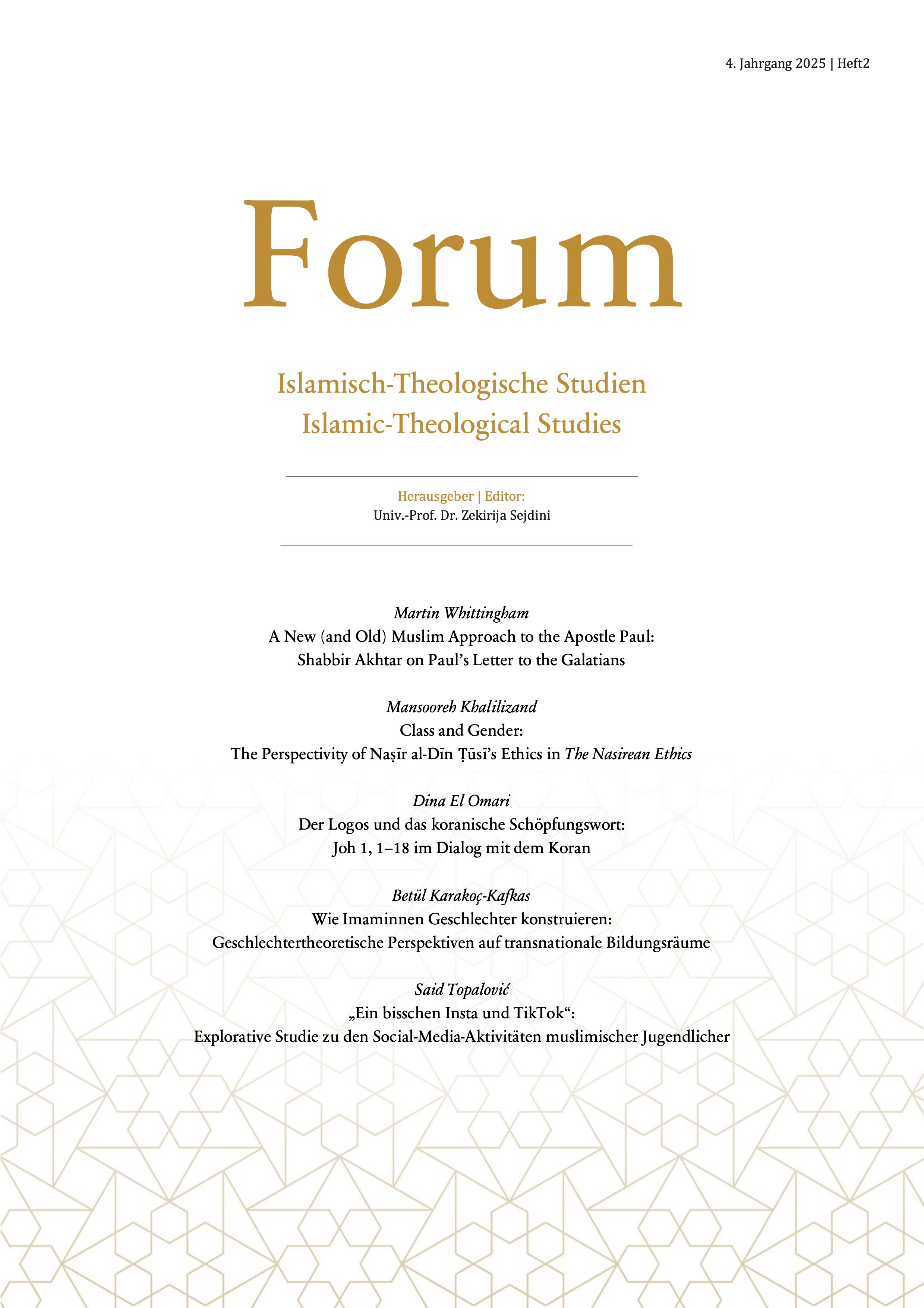Class and Gender
The Perspectivity of Naṣīr al-Dīn Ṭūsī’s Ethics in The Nasirean Ethics
DOI:
https://doi.org/10.71573/2941-122X_2025_4-2_150Schlagwörter:
class, gender, women, slavery, perspectivityAbstract
Naṣīr al-Dīn Ṭūsī’s (d. 1274) Akhlāq-e Nāṣerī is, above all, a Persian translation of Miskawayh’s (d. 1030) Tahḏīb al-akhlāq, originally composed in Arabic. Since the latter contained no chapters on economics or politics, Ṭūsī supplemented his translation with two additional chapters. For these, he drew on Fārābī’s Mabādiʾ ārāʾ ahl al-madīna al-fāḍila and Ibn Sīnā’s Kitāb al-siyāsa, incorporating selected passages that he regarded as particularly valuable and worthy of being made accessible to a Persian-speaking readership.
A significant portion of the chapter on economics in Akhlāq-e Nāṣerī focuses on women, their nature, and how they should be treated by men. Although these discussions are drawn from various sources, Ṭūsī organizes them in a way he deems appropriate.
In this article, I will focus on these additional two chapters of Akhlāq-e Nāṣerī with special attention to Ṭūsī’s ideas on womanhood. I will also examine his views on slavery and the status of slaves in his envisioned city. I argue that slaves occupy a comparatively better position in Ṭūsī’s ideal city than women, enjoying a degree of social mobility that allows themto rise within the social hierarchy. In contrast, women are confined to the domestic sphere and subjected to strict control. They are often associated with matter, which must be governed by form, and are therefore portrayed as the source of chaos. If left unchecked, this chaos is seen as a threat to both the moralorderand the broader social structure.
Downloads
Veröffentlicht
Ausgabe
Rubrik
Lizenz
Copyright (c) 2025 Mansooreh Khalilizand (Author)

Dieses Werk steht unter der Lizenz Creative Commons Namensnennung 4.0 International.
FORUM is committed to Diamond Open Access. All articles and reviews are freely accessible from the date of publication, with no charges for authors (APCs) or readers. FORUM relies on the technical and financial support of the University of Innsbruck to ensure long-term accessibility.
All published content is licensed under a Creative Commons Attribution 4.0 International License (CC BY 4.0). This allows anyone to share and adapt the material for any purpose, provided proper credit is given. Authors retain full and permanent ownership of their work while granting FORUM a non-exclusive, perpetual right to publish and distribute it.
Authors are responsible for securing rights for any images, illustrations, or figures included in their work. They are encouraged to share their published articles in institutional repositories or personal websites to maximize visibility. Additionally, authors may enter into separate agreements for non-exclusive distribution, provided the original publication in FORUM is acknowledged.
FORUM does not charge reprint fees, and no additional permission is required for republication, as authors retain copyright.


